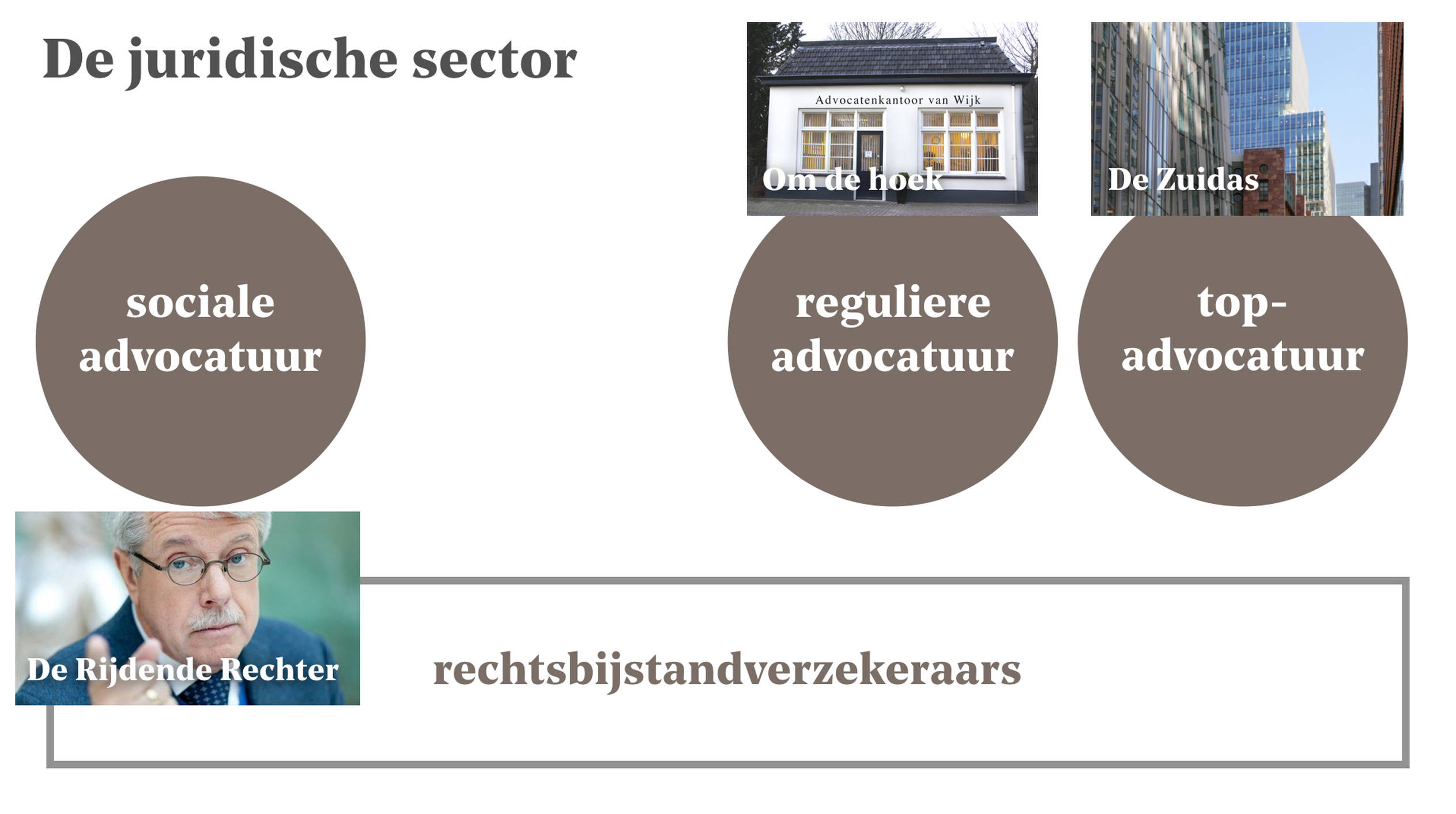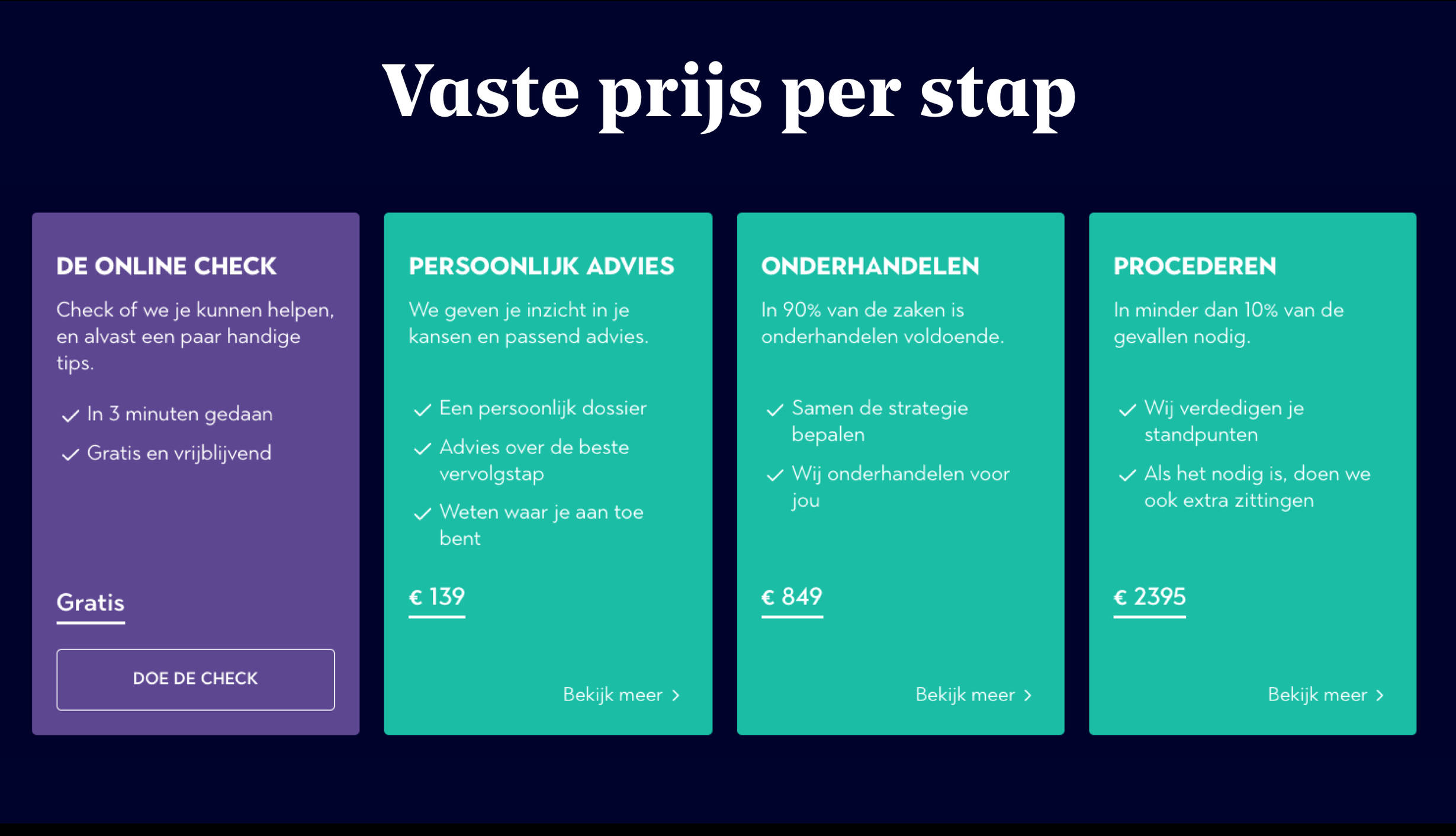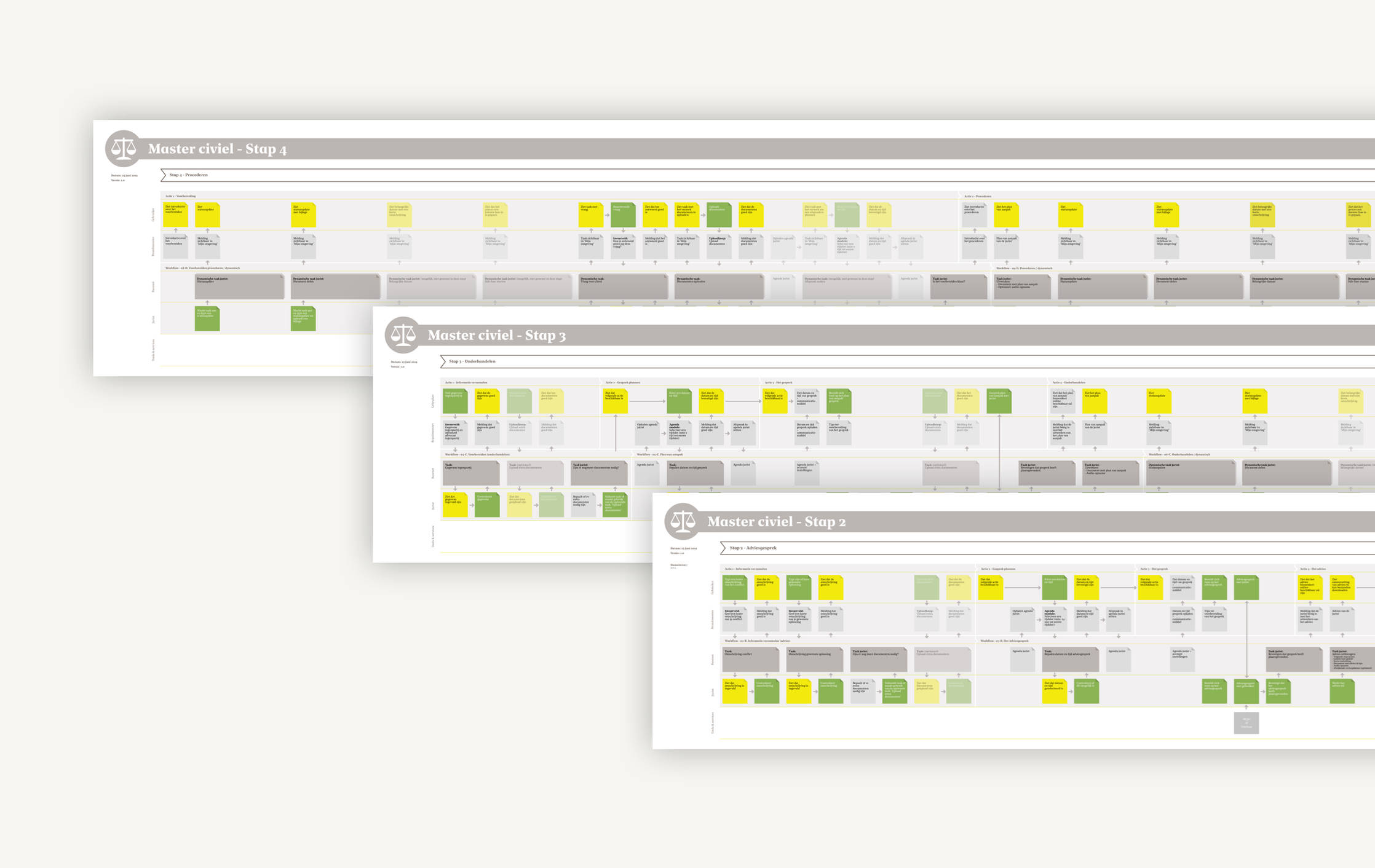How to build a disruptive service that really shakes things up: BrandMR
Fabrique and Brandmeester built a disruptive service, one that does things completely differently. With it, we shook up the conservative legal market. The kinds of things you learn when you do that? That you shouldn't try to find support. That the 80/20 rule is sacred. And that you must have endless faith in your mission.

When Brandmeester went live at the beginning of October, it made the front page of the Netherlands’ leading financial daily newspaper Financieel Dagblad. The Dutch parliament asked questions and Minister for Legal Protection Sander Dekker called it an 'extremely interesting initiative'. With a response like that, you know you're shaking things up. Brandmeester is doing something brand new in the conservative, legal market: offering legal aid to private individuals at a fixed, low price.
A bit of background information about the legal sector in the Netherlands: below a certain income limit you can turn to social legal aid. Or, if you are insured, you can knock on the door of your insurance company when the shit hits the fan. A select few might get help from a reality TV judge, but the rest of the Dutch population is dependent on hiring a lawyer.

The lawyer avoider
Lawyers can be found in the Amsterdam legal district or around the corner, but they usually don't come cheap. Research* shows that the average hourly rate is 217 euros. For that amount you might be able to get a free phone call or a cup of coffee, but after that the lawyer will start charging. As a result of these high and unpredictable costs, more and more Dutch people are choosing not to go the legal route. A quarter of Dutch people with a legal problem decide not to seek help. SRK Rechtsbijstand, which provides legal assistance to clients who have legal expenses insurance, thinks that number is much too high. Legal aid should be accessible to every Dutch citizen.
Thousands of quarrels about the garden fence
SRK has been helping insured people for over 50 years. They have seen thousands of letters of resignation, quarrels over garden perimeters and frustration over refused permits. They have a lot of knowledge and experience, and also a lot of data. SRK knows how long it takes on average to resolve a neighbour's garden quarrel. And that they can offer a cost-covering course of action for 925 euros.

SRK wants to make the law accessible to everyone, including those without legal expenses insurance. That's why they’ve started Brandmeester. With a fixed price per step and an online file in which all the tasks are listed. This way, Brandmeester makes both the costs and the process predictable. And people in a legal conflict can get the situation under control again. Brandmeester means “fire contained” and that is how people using the service are supposed to feel; like they had a situation that was out of hand, but now they can control it.
So that’s the service in a nutshell. Now for our 5 learnings about building a new service in a conservative market:
1. Stick to your values and brand essence
An important insight was that customers who first start using Brandmeester are emotionally overheated. They're panicking about a termination letter or the fact that their partner wants a divorce. That insight became the essence: Brandmeester has to ensure that the customer regains control of the situation. The brand values predictable and personal have always been leading in the development process: from product to platform, from tone of voice to advertising. We provide a service with the convenience of online, where clients can quickly get peace of mind and insight into the costs and the process. We combine this with the personal service of experienced lawyers.
2. Don't try to find internal support
Don't look for support, because you will end up with compromises and concessions. "That's how we’ve always done it" or "That's just the way it works" leads to a mediocre product that the user doesn't want. So don't get everyone together for brainstorming sessions, but start building based on insights and brand values. And organise expert sessions to check accuracy. We created involvement with information sessions where we explained why we were making certain choices. The philosophy: “Give people information, but don’t try to get their support.”
3. Don't focus on the exceptions
If there is one professional who is good at coming up with exceptions, it's the lawyer. That's why we used the 80/20 rule: we build the service for 80 percent of the target group. The other 20 percent should also be able to get help, but their atypical situation is not part of the standard process.
For the 80 percent, we have mapped out every step: what does the lawyer do, what does the client do and what does the system do? Based on this, we made a service blueprint. These kinds of blueprints can show how the user experience and business processes can be improved.

When we printed out the blueprint for an industrial dispute, it only just fit on the table. And that's not surprising, because it encompassed every action a lawyer takes. We basically digitalized a profession.
4. Don't build a service, build a brand
If you want to be different from the rest, you should look different. Speak different, write different. Brandmeester looks bold and fresh compared to other law firms. And we don't write long, convoluted prose, but short and concise sentences. The tone of voice is personal (to keep the distance small), constructive (we take a positive stance), understanding (we empathise) and clear (no jargon).
5. Have endless faith in your mission
During the whole process you must have endless faith in your mission. Because when you come up with something new, you will invariably run into resistance. For example, Brandmeester wanted to employ lawyers as salaried employees, but the Dutch bar association has a regulation stating that such lawyers may only act for insured clients and not for uninsured clients. Even though they are doing exactly the same job, completely independently, according to exactly the same core values, with the only difference being the piece of paper that says someone is insured.
Brandmeester started in October. Despite the challenges. The legal categories of Labour, Housing and Injury have gone live. The future is still unsure, but if you are sure about everything, then you are not disrupting anything.
* Source: Kleos Benchmark Advocatuur 2019 n= 216, small and medium-sized law firms, Wolters Kluwer Legal & Regulatory